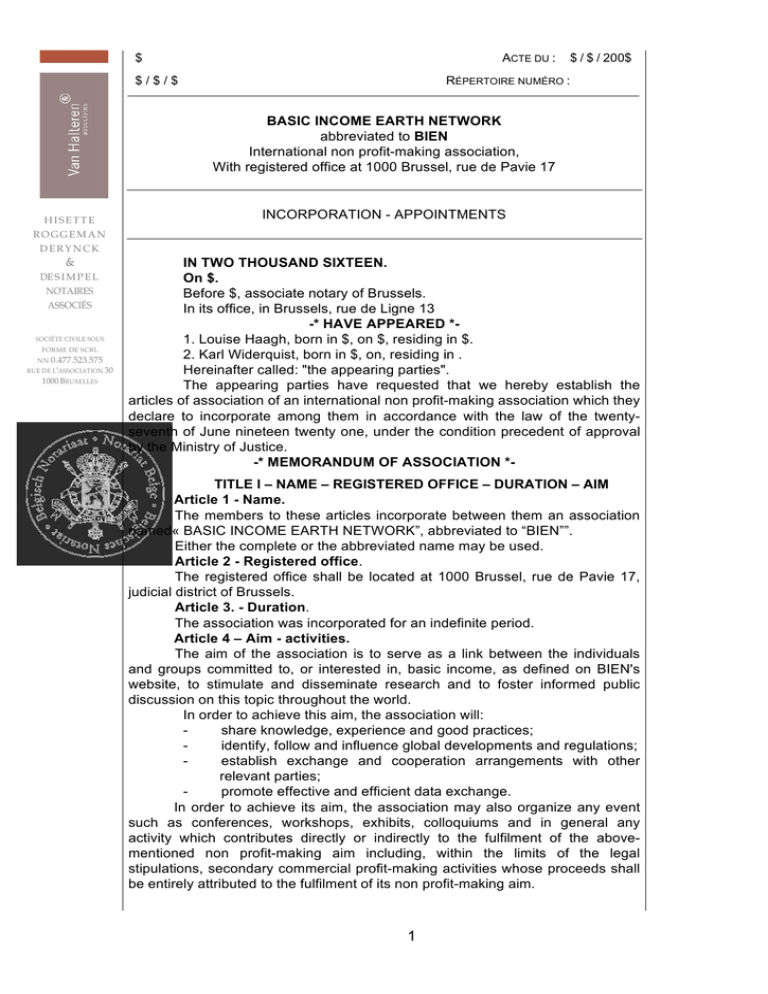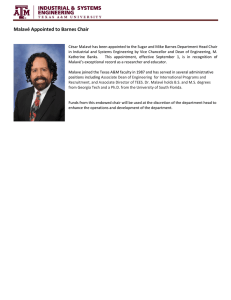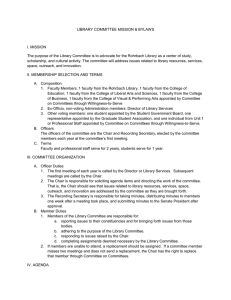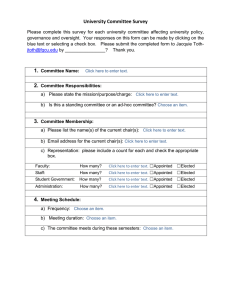Proposal in English - Basic Income Earth Network
advertisement

$ ACTE DU : $/$/$ $ / $ / 200$ RÉPERTOIRE NUMÉRO : BASIC INCOME EARTH NETWORK abbreviated to BIEN International non profit-making association, With registered office at 1000 Brussel, rue de Pavie 17 HISETTE INCORPORATION - APPOINTMENTS ROGGEMAN DERYNCK & DE S I M P E L NOTAIRES ASSOCIÉS SOCIÉTE CIVILE SOUS FORME DE SCRL NN 0.477.523.575 RUE DE L'ASSOCIATION 30 1000 BRUXELLES IN TWO THOUSAND SIXTEEN. On $. Before $, associate notary of Brussels. In its office, in Brussels, rue de Ligne 13 -* HAVE APPEARED *1. Louise Haagh, born in $, on $, residing in $. 2. Karl Widerquist, born in $, on, residing in . Hereinafter called: "the appearing parties". The appearing parties have requested that we hereby establish the articles of association of an international non profit-making association which they declare to incorporate among them in accordance with the law of the twentyseventh of June nineteen twenty one, under the condition precedent of approval by the Ministry of Justice. -* MEMORANDUM OF ASSOCIATION *TITLE I – NAME – REGISTERED OFFICE – DURATION – AIM Article 1 - Name. The members to these articles incorporate between them an association named« BASIC INCOME EARTH NETWORK”, abbreviated to “BIEN””. Either the complete or the abbreviated name may be used. Article 2 - Registered office. The registered office shall be located at 1000 Brussel, rue de Pavie 17, judicial district of Brussels. Article 3. - Duration. The association was incorporated for an indefinite period. Article 4 – Aim - activities. The aim of the association is to serve as a link between the individuals and groups committed to, or interested in, basic income, as defined on BIEN's website, to stimulate and disseminate research and to foster informed public discussion on this topic throughout the world. In order to achieve this aim, the association will: share knowledge, experience and good practices; identify, follow and influence global developments and regulations; establish exchange and cooperation arrangements with other relevant parties; promote effective and efficient data exchange. In order to achieve its aim, the association may also organize any event such as conferences, workshops, exhibits, colloquiums and in general any activity which contributes directly or indirectly to the fulfilment of the abovementioned non profit-making aim including, within the limits of the legal stipulations, secondary commercial profit-making activities whose proceeds shall be entirely attributed to the fulfilment of its non profit-making aim. 1 TITRE II - MEMBERS Article 5. - Life members. The association shall comprise at least two (2) life members, natural persons, who shall be subject to the provisions of these articles of association and the legal provisions applying to international non profit-making associations. The life members are: 1. The founders; 2. The current life members of the BIEN organisation, whose admission to the association is ratified by the Executive Committee. 3. Any natural person wishing to support the activities of the association may request the status of Life member by writing to the General Assembly, which shall elect a Secretary to handle membership application in between General Assembly meetings. The Secretary shall inform the candidate whether they meet the criteria for membership by ordinary letter or electronic communication such as email. Any candidate refused membership may appeal against his/her refusal as a life-member to the Executive Committee and to the General Assembly, which has the final say. In this case, after hearing the defence of both sides, the General Assembly shall at its closest meeting either confirm the refusal or overturn the decision of the Secretary and/or the Executive Committee. Its decision shall not be appealed against and does not need to be substantiated. Life members shall have no rights and obligations other than those stated in these articles of association. Article 6. - Resignation. The life members may withdraw from the association at any time by sending a registered letter of resignation to the Executive Committee at the association’s registered office or by email. Article 7. - Suspension. The Executive Committee may decide to suspend life members who would be guilty of a serious offense against the articles of association and laws of honour and propriety, pending a decision by the General Assembly. Any suspended life member shall lose all his/her rights for the duration of the suspension. After hearing the defence of the suspended life member, the General Assembly shall at its closest meeting: either confirm the suspension. In that particular case, the General Assembly shall determine the duration of the suspension or decide to expel the life member; or overturn the decision of the Executive Committee. Its decision shall not be appealed against and does not need to be substantiated. Article 8. - Expulsion. Upon proposal of the Executive Committee or at the request of one fifth of the life members, the General Assembly, shall decide by a two-thirds majority of the votes of life members present to exclude a life member guilty of a serious offense against the articles of association and laws of honour and propriety. Any life member whose expulsion is proposed shall lose all his/her rights for the duration of the suspension. Prior to this decision, the General Assembly shall hear the defence of the concerned party. After hearing the defence of the life member whose expulsion is proposed, the General Assembly shall at its closest General Assembly: 2 - either agree with the proposal of the Executive Committee and pronounce the expulsion. In that particular case, the expulsion will be immediate; or overturn the decision of the Executive Committee. Its decision shall not be appealed against and does not need to be substantiated. Article 9. - Register of members. The Executive Committee shall keep, at the registered office of the association or any other location – e.g. its official web-page, a register of life members containing, in addition to their identity, the decisions of admission and resignation and/or exclusion. PART III – CONTRIBUTIONS – DISPOSAL. Article 10. – Membership qualifications. The General Assembly may set a membership fee and may change it at the General Assembly meeting. PART IV – GENERAL ASSEMBLY Article 11. - Composition. The general assembly shall consist of all life members who are present. Proxy votes are not allowed. Article 12. - Powers. The general assembly has all the powers which are specifically granted to it by law or these articles of association. Its powers include in particular: 1. the appointment and dismissal of the members of the Executive Committee and, if required, the auditor; 2. the approval of budgets and accounts as well as the discharge to be granted to the Executive Committee members and auditors; 3. the transformation of the association into a company with a social purpose. Article 13. - Meetings - Chair An ordinary General Assembly shall be held at least every two years at the occasion of the BIEN Congress, which meets at least once every two years anywhere in the world. The executive committee may convene an extraordinary general assembly if it considers this appropriate. The executive committee shall convene an extraordinary General Assembly whenever one fifth of the life members of the association requires it. This meeting must be convened by the Executive Committee at its closest meeting. Extraordinary general assemblies shall be held on the day, time and place indicated in the notification. An extraordinary general assembly may also be held by through telecommunication techniques allowing a collective deliberation, such as conference call or video conference, and which enable the different attendees geographically far from each other to simultaneously communicate between them. The extraordinary meeting shall be chaired by the chair of the Executive Committee or, in his or her absence or in case of election of the Executive Committee’s members, by the chair or co-chair, or in his/her absence, by the vice-chair or by the other co-chair. In the event that both are absent, their functions shall be fulfilled by the longest-serving Executive Committee member present. Article 14. – Convening notices. 3 The convening notices shall be sent by ordinary letter, email or fax to each member at least one hundred twenty days (120) days before the meeting and contain the agenda. At least thirty (30) days before the meeting, the Secretary shall send to the life members, by email, the agenda, any proposal(s) of amendment to the articles of association, the documents required for the discussion of the agenda and, in case of appointments, the identity of candidates who intend to run for reelection. Opposing candidates or for positions without existing candidates can be nominated till the evening prior to the General assembly. Article 15. - Representation – Voting rights. A life member may not vote by proxy. Each life member shall have one vote. Article 16. - Resolutions – Minutes. The General Assembly may pass resolutions on the items on the agenda and suggests amendments that can be voted on at the Assembly. Save the cases provided for by these articles of association, the meetings shall validly resolve regardless of the number of life members present by a simple majority of the votes. The decisions of the General Assembly shall be recorded in a register of minutes signed by the chair or a Committee member and the secretary of the Executive Committee. This register shall be kept at the registered office or on the official webpage of the association where it may be consulted but not removed by the life members. Copies or extracts of these minutes shall be officiated by the secretary of the Executive Committee by placing a summary on the official web-pages of the association and a full copy retained. Resolutions reached by the General Assembly which are of particular interest for all life members shall be brought to the attention of the latter by email. Resolutions which are of interest to third parties shall be communicated in the form of extracts. TITLE V – AMENDMENT OF ARTICLES OF ASSOCIATION Article 17. – Procedure – majority Any life member or Executive Committee member may submit a proposal of amendments of association to the Secretary in writing (including e-mail) in order for it to be put on the agenda of the closest general assembly. The General Assembly, or in the case of article 27 of the articles of association, by the International Board, shall validly deliberate between the life members who are present. The proposed amendment must be approved by the General Assembly, or in the case of article 27 of the articles of association, or in the case of article 27 of the articles of association, by the International Board, at a simple majority. TITLE VI – ADMINISTRATION – AUDIT. Article 18. - Executive committee. The association shall be administered by an Executive Committee consisting of at least five (5) members up to nine (9) members appointed from life members by the General Assembly. They can be revoked by the General Assembly at any time, both decision being taken by the majority of the votes. Their mandates shall last two (2) years. Each Committee member may be re-elected for one or several terms of two (2) years. They may be re-elected for an unlimited number of terms. 4 The term of office of outgoing Committee members who are not re-elected shall cease immediately upon termination of the ordinary General Assembly. The Committee member’s term of office shall end immediately if the Committee member in question loses his status of life member for any reason whatsoever. The mandate of Committee member shall not be remunerated. In cases of maternity or periods of ill health affecting a committee member – including affecting a person in their care - the executive committee shall appoint a replacement till such time the maternity period is agreed or a member affected by ill health is able to return, provided this is during the term of elected office. Such election will not have any influence on the Committee member’ membership in the current BIEN organisation. Article 19. - Powers. The executive committee shall possess extensive powers concerning the administration and management of the association. Furthermore, the executive committee exercise all powers that are not expressly reserved to the general assembly by the law or these articles of association. Its powers are collegial. Article 20. - Composition of the Executive Committee. At the same time they are elected, the Committee members are appointed by the General Assembly to the following specific offices: a chair; or co-chair a vice-chair or co-chair; a secretary; a treasurer; up to four additional members whose functions within the Executive Committee are to be defined by the Executive Committee in advance of elections. In the event of the chair’s or both co-chairs’ absence, his/her or their functions shall be fulfilled by the vice chair or the longest-serving Committee member present. One member of the Executive Committee, a conference organiser, shall not be elected by the General Assembly, but shall be appointed by the local organizing committee for the next Congress. The conference organizer shall be a full voting member of the Executive Committee. Article 21. - Convening notice - Meetings - Resolutions. The Executive Committee shall meet at least twice a year in person or by skype (or equivalent electronic medium) upon convocation by the chair or cochairs or at the request made by half of the members of the Committee to the chair/co-chairs. Each Committee member is convened at least eight days prior to the meeting, except in case of emergency, by means of a convening notice which contain the agenda. The Executive Committee may only validly deliberate on the items on the agenda and if at least half the members is present or represented. A board member unable to attend a meeting may appoint another board member as its proxy by ordinary letter, email or by any electronic means, as long as they can printed to be appended to the minutes and that the proxy confirms the receipt of the electronic mandate, to represent him and vote on his behalf. 5 However, no board member may thus represent more than two of his fellow members Resolutions shall be passed by a majority of the votes of the Committee members participating in the vote. In the event of a tie, the chair of the meeting shall have the casting vote. They shall be consigned in the form of minutes, signed by the chair or a Committee member and the secretary and entered in a special register. Article 22. - Daily management. The Executive Committee may entrust the day-to-day management of the association as well as the representation of the association regarding this management to one or more of persons, Committee members or not, which shall wear the title of daily management representative. If the daily management and its representation are delegated to a Committee member, its title shall be managing director. If the association has more than one daily management representative/managing directors, they will act individually. Article 23 – Honourary co-presidents The Executive Committee may appoint one or more honorary copresident(s), who were founders of the international structure of BIEN and longserving co-chair(s). They will assist to the meetings of the Executive Committee and they will have an advisory vote Article 24. - Audit. If need be, and in any case required by law, the association shall entrust one or more auditor(s), appointed for three (3) years by the general assembly among the members of the Institut des Reviseurs d’Entreprises, with the audit of the association’s financial situation, its annual accounts and the legality of the operations reflected in said accounts. The fees of the auditor(s) shall be established by the General assembly at the time of their appointment. Outgoing auditors may be re-elected. Article 25. - Representation. The association shall be validly represented in legal proceedings and elsewhere either by the chair or the co-chairs of the Executive Committee or by two Committee members acting jointly. Within the limits of its daily management, the association shall be validly represented by the daily management representative. Within the limits of their mandates, it is validly represented by special proxies. TITLE VII – INTERNATIONAL BOARD Article 26. – Composition BIEN's International Board consists of all present and former members of the Executive Committee. It meets to take decisions within the competence of the General Assembly that cannot wait until the latter's next meeting Article 27 Convening notice - Meetings - Resolutions The International Board is convened according to the provisions applicable to the Executive Committee. The convening notice will indicate the reason that the decision cannot wait until the next meeting of the General Assembly. Its chair is elected for a two-year term by the General Assembly. 6 The International Board shall resolve in compliance with the provisions 16 and 17 of this Articles of Association. The International Board shall inform the General Assembly of the taken decision and the reason of emergency within the two months of the decision. TITLE VIII - FINANCIAL YEAR – WINDING UP. Article 28. - Winding up - Liquidation. In the event of winding-up of the association, the Executive Committee shall appoint the liquidator(s), establish their powers and indicate the allocation of the net assets of the assets of the association. Said allocation must be made in favour of a non-profit making purpose. All decisions relating to the winding up, the liquidation conditions, the appointment and cessation of the function of the liquidator(s), the completion of the liquidation and the allocation of the net assets shall be filed with the office of the commercial court and published in the appendixes to the Moniteur Belge (Belgian Official Gazette) according to the legal provisions. TITLE VIII – GENERAL PROVISIONS. Article 29. - Internal rules. Internal rules and policies may be presented by the executive committee or by any life member to the general assembly. Amendments to those rules may be made to these regulations by a general assembly, at the simple majority of the votes of the present members. Such rules and policies include but are not limited the choice of the time and location of the next Congress, the creation of any other boards or offices necessary for BIEN’s function, and the terms by which other organizations can have an affiliate relationship with BIEN. Article 30. - Election of domicile. For the purposes of these Articles of Association, all members, directors, proxies and liquidators having their domicile abroad are deemed to have elected domicile at the association's registered office. Article 31. - Common law. Any matter not specified in these articles of association shall be governed by legislative provisions. -* FINAL PROVISIONS *Founders who are present or represented as stated above take unanimously the following resolutions, which shall have effect as soon as the association acquires its legal personality. A. Appointment of first Executive Committee members. The number of Executive Committee members is initially set at nine (9). The following persons are appointed as Executive Committee members and the function mentioned next to their identity: 1. Louise Haagh, aforementioned, also appointed as co-chair; 2. Karl Widerquist, aforementioned, also appointed as co-chair; 3. Anja Askeland, born in $, on $, residing in $, also appointed as Secretary; 4. Toru Yamamori, born in $, on $, residing in $, also appointed as Treasurer; 5. Hyosang Ahn, born in $, on $, residing in $, also appointed as News and Outreach ; 6. Pablo E. Yanes Rizo, born in $, on $, residing in $, also appointed as News and Outreach 7. Andrea Fumagalli, born in $, on $, residing in $, also appointed as News and Outreach 7 8. Borja Barragué, born in $, on $, residing in $, also appointed as News and Outreach 9. Jason Burke Murphy, born in $, on $, residing in $, also appointed as local conference organisor. The directors’ mandate shall end at the end of the ordinary general assembly held in the year two thousand and eighteen, unless they are re-elected. Two members or the co-chairs acting jointly shall validly represent the association. The Executive Committee members shall not be remunerated for their functions. B. Auditors No auditor is appointed, as the association will not meet the criteria set out in article 53 of the law of 27 June 1921 relating to non profit-making associations during its first financial year. C. Honorary Co-president – Chair of the International Board. The persons appointed herein as Committee members, who are present or represented as stated above, hereby declare that they unanimously take the following decisions: - are appointed as honorary co-presidents: (i) Mr. Philippe Van Parijs, aforementionned; (ii) Mr. Guy Standing. - is appointed to act as Chair of the International Board: Mr. Philippe Van Parijs. D. First financial year. The first financial year shall commence on the date on which the association acquires a legal personality, and shall end on 31 December two thousand and seventeen. E. Start of business. The start of the association’s business shall be the date of its registration in the Business Registry. F. Powers. All powers, including power to sub-delegate to $, acting separately, for the performance of the filing of the King’s approval and of formalities with the Banque Carrefour des Entreprises. IN WITNESS WHEREOF. This deed was executed at the date and place stated above. After it had been read in full and commented on, it was signed by the appearing parties and the notary. 8


